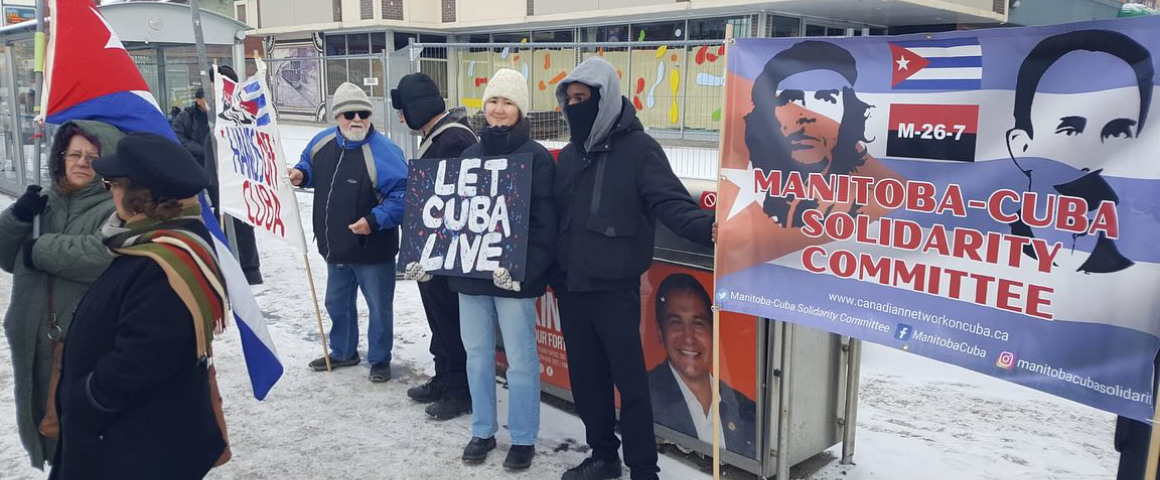In what has been called Spain’s worst political crisis in 40 years, on October 27 the Spanish government dismissed the regional government in Catalonia, just moments after Catalonia’s declaration of independence, and imposed direct rule. This was preceded by the single largest state security operation since the end of the Franco dictatorship, aimed at preventing the October 1 referendum on Catalan independence.
The move to direct rule was based on a never-before-used article in Spain’s constitution, and had the support of both the right-wing ruling party (Partido Popular) and the social democratic opposition (Partido Socialista Obrero Español).
Capitalist governments and institutions around the world – including the European Union, Britain, Germany, the United States and Canada – have quickly indicated their support for the Spanish government.
The social democratic Podemos has presented a timid and confusing position. While they have declared their opposition to the government’s dissolution of the Catalan government and the imposition of direct rule, their main concern is that the Partido Popular will use these measures to acquire more influence than their electoral results provide. Podemos has adopted the contradictory position of supporting the referendum, but agreeing with the government that the results (independence) are illegal and illegitimate.
While Podemos leader Pablo Iglesias does hint that there is class basis to the crisis, he locates this factor exclusively within the government and not within the State itself. Rather than respect the right of self-determination, Iglesias tacks toward opportunism and self-promotion: “The elites know that only a coalition government with Podemos could provide a democratic solution to the problem in Catalan, but our presence in the Government would have threatened their privileges.”
In contrast, the Spanish Left has denounced the government’s moves as an aggressive denial of the right to self-determination, and has called for mass mobilizations in protest.
The Communist Party of the Peoples of Spain (PCPE) declared on October 27 that the dissolution of Catalonia’s regional government is “another demonstration of how the great Spanish bourgeoisie, in its historical inability to solve the national question, resolves difficulties generating immense problems through the application of measures of the highest repressive nature.”
The PCPE describes the current crisis as a product of capitalist society. “The capitalist system, in its higher stage of development, is immersed in a profound general crisis that turns the bourgeoisie into a decadent class whose only way out, to maintain the hegemony that it recovered with Franco and kept intact in the so-called Transition [to democracy], is to increase the exploitation of the working class and the exclusive looting of what it considers its “national” market.”
In this context, the PCPE refers to the government’s actions as a “self-coup” (autogolpe in Spanish). A self-coup is typically an act through which the State aggressively curtails its own democratic institutions, in order to preserve or reproduce its foundations during a time of crisis. The PCPE observes that deepening contradictions within Spanish capitalism are leading to an “accelerated liquidation of the social, labor and political achievements reached through decades of hard workers and popular struggle.” It identifies a confederal, socialist republic as necessary for guaranteeing the right to self-determination and other progressive gains.
In a statement issued on October 29, the Communist Party of Spain (PCE) called for “an exit from the current crisis, which allows the People of Catalonia to vote freely and democratically about their future and that contemplates the recovery of social, labour, and economic rights, lost in Catalonia for years.”
The PCE notes that the crisis is being presented in a way that deflects attention from many of the key issues facing the working class in Catalonia and throughout Spain. “The reality is that with this territorial confrontation, today we are not talking about the increasingly harsh working conditions, or of the precariousness suffered by millions of people throughout the country. Nobody points out that the Partido Popular has profited from corruption. The problems of hundreds of evicted families do not appear in public discussion, or the fact that women continue to be victims of sexist violence. All of these issues, which are really the ones that should worry the working class and people today, are hidden behind the territorial issue.”
The PCE advocates a federated republic as the “constitutional framework that allows the peoples of the State to decide on all the issues that affect them, social, labour, and territorial, a constitutional that guarantees by law the rights to housing, work, health, education, a Constitution that effectively guarantees the rights of women and that includes the right to self-determination.”




